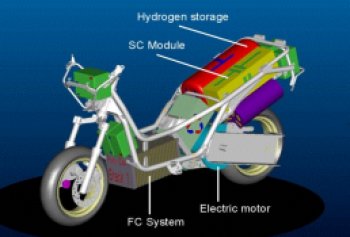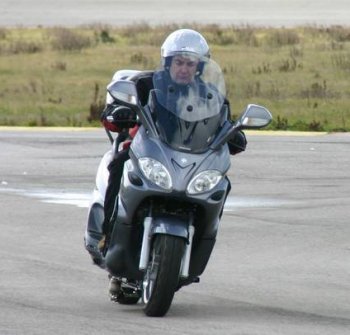A full hydrogen fuel cell scooter was recently successfully operated at the testing grounds of Piaggio & C Spa in Pontedera, Italy. The development of this zero-emission vehicle aims at a reduction of greenhouse gasses in our future society where hydrogen will be the energy carrier. Piaggio teamed up with the Energy Research Centre of the Netherlands (ECN) that build the "electrochemical engine" comprising the fuel cells.
Scooters are popular vehicles in cities and urban area all over the world. Reducing the emissions and energy use of these vehicles would mean a great asset in improving air quality and preserving the environment, including the reduction of noise. Highly efficient fuel cells running on hydrogen and feeding an electric motor form the preferred technology.

